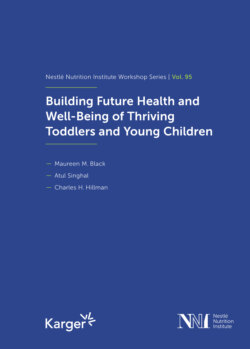Читать книгу Building Future Health and Well-Being of Thriving Toddlers and Young Children - Группа авторов - Страница 23
На сайте Литреса книга снята с продажи.
Food Neophobia
ОглавлениеFood neophobia, defined as refusal or fear to eat unfamiliar foods, is a normal developmental phase during toddlerhood that declines during childhood. From an ethological perspective, neophobia is adaptive because it protects children from novel foods that may be harmful or bitter. Food neophobia differs from selectivity or pickiness, defined as specific food preferences and dislikes, regardless of familiarity. A recent systematic review and meta-analysis of neophobia and picky eating emphasized the relevance of considering the social context and bidirectional parent-toddler aspects of feeding, including factors at the biological, child, parent, and household levels [21].
Evidence has shown that 10 or more presentations of the novel food may be necessary to overcome neophobia [21]. Food neophobia is often managed through familiarity and modeling with family members eating the novel foods. If familiarity and modeling are not effective, caregivers may remove the novel food from the toddler’s diet or attempt to force the toddler to eat the novel food. Limiting the toddler’s food choices denies access to healthy foods and teaches the toddler the power of refusal. Using force or pressuring techniques may increase resistance and lead to confrontational mealtimes, particularly among children who are temperamentally difficult.
Fig. 1. Responsive feeding.
Neophobia can transition into pickiness, especially if caregivers attempt to use controlling or coercive strategies. The autonomy that toddlers have developed makes them want to be agents of their own preferences and actions [22]. They may resist food that looks or smells unfamiliar or unappealing or because they can resist. If their resistance results in conflict, a negative pattern may result whereby caregivers perceive the toddler to be resistant or picky, and they then implement maladaptive strategies. A reconceptualization of neophobia has been suggested to consider the roles and perceptions of both caregivers and toddlers, to reduce the tension in their interaction, to move away from the “picky eater” term, and to focus on caregivers’ expectations of children’s eating and mealtime interactions [22].
